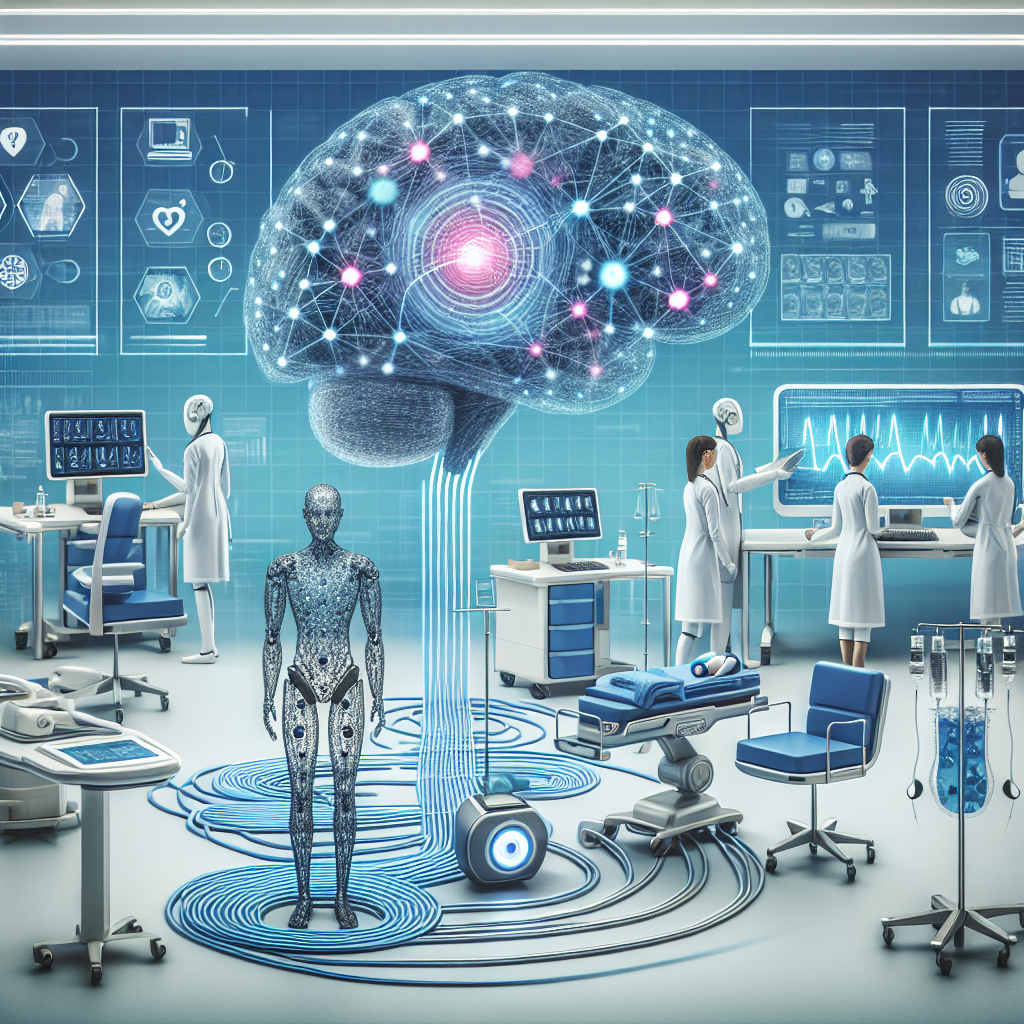Artificial General Intelligence (AGI) has the potential to revolutionize the healthcare industry by significantly improving the efficiency and effectiveness of various processes. AGI refers to a type of artificial intelligence that can perform any intellectual task that a human can do. In healthcare, AGI can be used to analyze vast amounts of data, make accurate diagnoses, personalize treatment plans, and even assist in surgical procedures. This article will explore the ways in which AGI is transforming the healthcare industry and address some common questions about its implementation.
AGI in Diagnostics
One of the most significant applications of AGI in healthcare is in diagnostics. AGI-powered algorithms can analyze medical images, such as X-rays, MRIs, and CT scans, with incredible accuracy and speed. This can help healthcare providers detect diseases and conditions at an early stage, leading to better outcomes for patients. For example, a study published in the journal Nature found that an AGI algorithm was able to diagnose certain skin cancers as accurately as dermatologists.
AGI in Personalized Medicine
Another area where AGI is making a big impact is in personalized medicine. By analyzing a patient’s genetic information, medical history, and other data, AGI algorithms can help healthcare providers tailor treatment plans to individual patients. This can lead to better outcomes and fewer side effects. For example, researchers at the Mayo Clinic have used AGI to identify optimal drug combinations for cancer patients based on their genetic profiles.
AGI in Drug Discovery
AGI is also being used to accelerate the drug discovery process. By analyzing vast amounts of biological data, such as genomic and proteomic data, AGI algorithms can identify potential drug targets and predict how drugs will interact with the body. This can help pharmaceutical companies develop new drugs more quickly and cost-effectively. For example, Insilico Medicine, a biotech company, has used AGI to identify new drug candidates for diseases such as cancer and Alzheimer’s.
AGI in Surgical Robotics
In addition to diagnostics and personalized medicine, AGI is also being used in surgical robotics. AGI-powered robots can assist surgeons in performing complex procedures with greater precision and control. For example, the da Vinci Surgical System, which uses AGI algorithms, has been used in thousands of surgeries around the world, with studies showing that it can reduce complications and recovery times for patients.
FAQs
Q: How is AGI different from other types of artificial intelligence?
A: AGI is different from other types of artificial intelligence, such as narrow AI or machine learning, because it has the ability to perform any intellectual task that a human can do. This makes AGI more versatile and adaptable to different situations.
Q: Is AGI safe to use in healthcare?
A: While AGI has the potential to revolutionize healthcare, there are also concerns about its safety and ethical implications. It is important for healthcare providers to carefully evaluate the risks and benefits of using AGI in their practices and to ensure that patient data is protected.
Q: How can healthcare providers implement AGI in their practices?
A: Healthcare providers can implement AGI in their practices by partnering with technology companies that specialize in healthcare AI solutions, training their staff on how to use AGI algorithms effectively, and integrating AGI into existing workflows and systems.
Q: Will AGI replace human healthcare providers?
A: While AGI has the potential to automate certain tasks in healthcare, such as diagnostics and data analysis, it is unlikely to replace human healthcare providers entirely. Instead, AGI will likely augment the abilities of healthcare providers and help them deliver better care to patients.
In conclusion, AGI has the potential to revolutionize the healthcare industry by improving diagnostics, personalized medicine, drug discovery, and surgical robotics. While there are still challenges to overcome, such as safety and ethical concerns, the benefits of using AGI in healthcare are clear. By embracing this technology, healthcare providers can deliver better care to patients and improve outcomes across the board.

